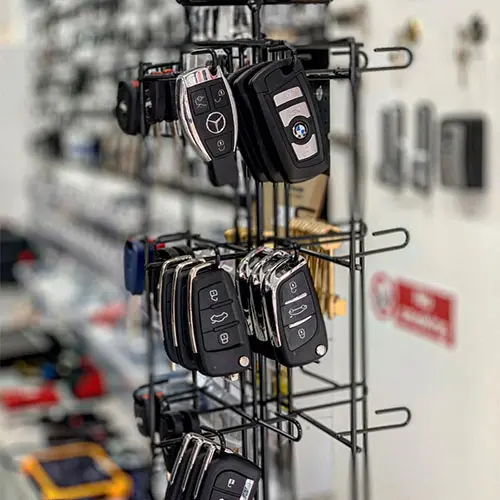What's The Job Market For Vehicle Lock Repairs Professionals Like?
페이지 정보
작성자 Niamh 작성일25-07-24 02:05 조회2회 댓글0건관련링크
본문
Vehicle Lock Repairs: Ensuring Safety and Security
In a world where vehicle theft and break-ins are prevalent, guaranteeing that a vehicle's locking mechanism is working efficiently is vital for both safety and security. vehicle lock repairs (245 writes) include a variety of fixes and upkeep procedures that deal with issues related to locks and ignition systems. This article supplies a summary of the types of vehicle lock concerns, indications of malfunction, repair choices, and preventative measures while likewise answering some often asked concerns.

Comprehending Vehicle Lock Mechanisms
Vehicle locks employ different mechanisms that differ amongst makes and models. The primary elements of a vehicle lock system generally consist of:
- Key Cylinder: The part where the key is inserted.
- Locking Bolt: Engages and secures the door when locked.
- Latch Assembly: Holds the door closed but can be disengaged when unlocking.
- Ignition Lock: Secures the ignition system of the vehicle.
Each of these elements can be vulnerable to use and tear or unexpected failure, causing lock-related concerns.
| Part | Description | Common Issues |
|---|---|---|
| Key Cylinder | Accepts the key to run the lock | Key jams, trouble turning the key |
| Locking Bolt | System that protects the door when locked | Bolt misalignment, stuck bolt |
| Lock Assembly | Engages and disengages to secure the door | Broken latch, inappropriate function |
| Ignition Lock | Secures the ignition to begin the vehicle | Key will not turn, ignition failure |
Signs of Lock Malfunction
Vehicle owners must be vigilant for signs that their lock systems might be failing. Some common indications of lock issues consist of:
- Difficulty Inserting Key: If the key does not easily fit into the cylinder, there might be particles inside or use taking place within the cylinder.
- Stuck Key: A key that gets stuck while turning can suggest internal damage or misalignment.
- Locked Door Will Not Unlock: If a door declines to unlock, it might be due to a malfunctioning locking bolt or lock.
- Uncommon Noises: Grinding or clicking sounds while attempting to lock or unlock the door can indicate structural problems in the locking mechanism.
- Faulty Remote: If the key fob is not responding, the concern may lie not just with the fob's battery however might also point towards problems in the lock receiver in the vehicle.
Fixing Vehicle Locks
Handling a vehicle lock concern can be intricate, and while some repairs can be dealt with at home, others might need expert assistance.
Do it yourself Repairs
Some minor lock concerns can be fixed without the help of a mechanic. Here are a few examples:
- Lubrication: Regularly apply a silicone-based lubricant to key cylinders and locks to prevent sticking.
- Tidy the Key: Dirt on the key can trigger jamming in the key cylinder. Clean keys with rubbing alcohol to get rid of dirt or residue.
- Inspect the Battery in the Remote: For remote key fobs, verify that the battery is functional by checking it with another vehicle or having it changed.
Professional Repairs
For more significant concerns, professional repairs might be required. Typical professional services include:
- Key Replacement: If the key is lost or harmed, a locksmith can produce a new key or rekey the lock.
- Reprogramming Key Fobs: Sometimes the remote requirements to be reprogrammed to sync with the vehicle's receiver.
- Comprehensive Lock Replacement: In serious cases, whole locking systems may need replacement due to harm or use.
Preventative Measures
To extend the life-span of vehicle locks and prevent problems, think about the following preventative measures:
- Regular Maintenance: Periodic examination and lubrication of locks can prevent future malfunctions.
- Prevent Excessive Force: Handling keys and doors gently can reduce endure locking mechanisms.
- Instantly Address Issues: If problems emerge, addressing them without delay can prevent more damage and more pricey repairs.
Often Asked Questions
Q: How do I know if my vehicle lock needs repair?A: Look for signs such as difficulty inserting the key, odd sounds, or the door stopping working to lock or unlock. Q: Can I repair a stuck lock myself?A: Simple issues such as lubrication might
be solved in the house; however, intricate problems normally require experts. Q: How much does it cost to repair a vehicle lock?A: Costs can vary extensively based upon the problem and vehicle type. Fundamental repairs might start around ₤ 50, whereas lock replacements can cost several hundred dollars. Q: What need to I do if I lose my car key?A: Contact a locksmith or your dealer for a replacement key. They may require your vehicle recognition number (VIN )to create a brand-new key. Q: Are aftermarket keys as dependable as original keys?A: Aftermarket keys can be less reliable than OEM keys, as they might not adhere to the same requirements and quality standards.
Keeping the integrity of a vehicle's lock system is
critical for overall security and safety. By recognizing the signs of a breakdown, performing appropriate repairs, and carrying out preventative measures, vehicle owners can avoid the inconvenience and possible dangers associated with lock concerns. Ensuring that locks work properly enhances not only the vehicle's safety however likewise the peace of mind of its owner.
댓글목록
등록된 댓글이 없습니다.